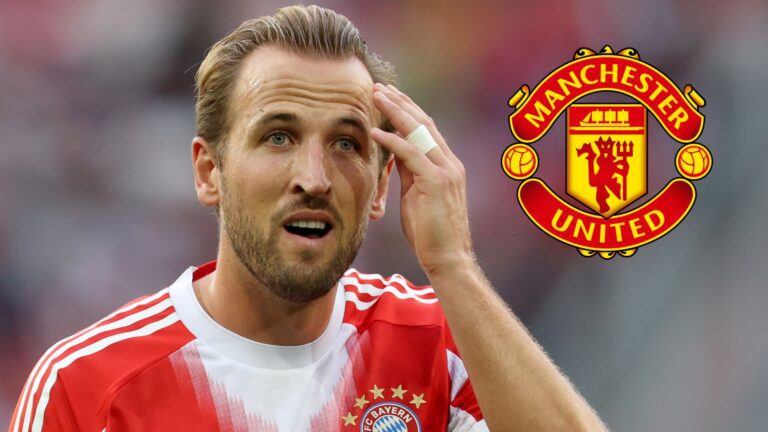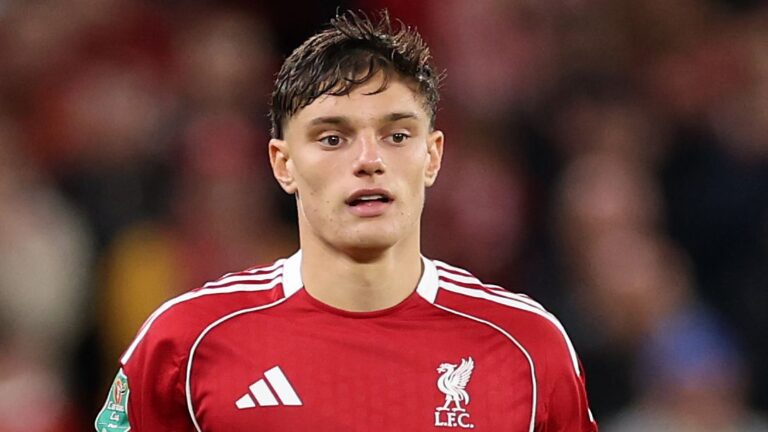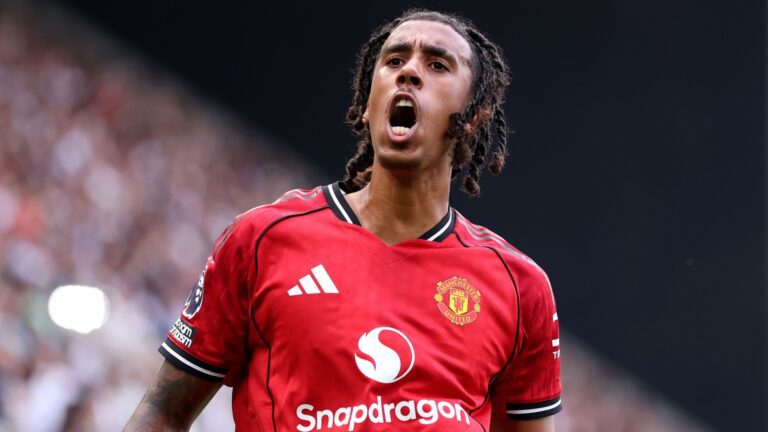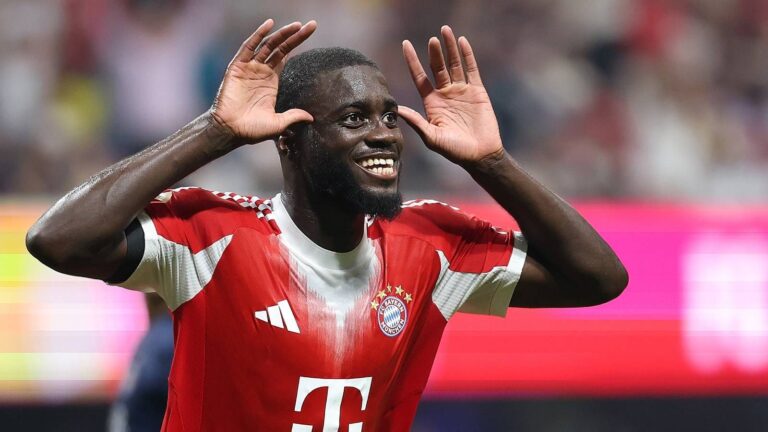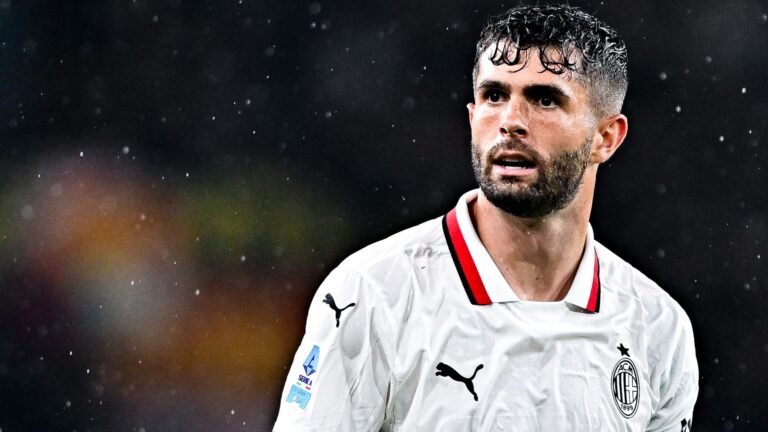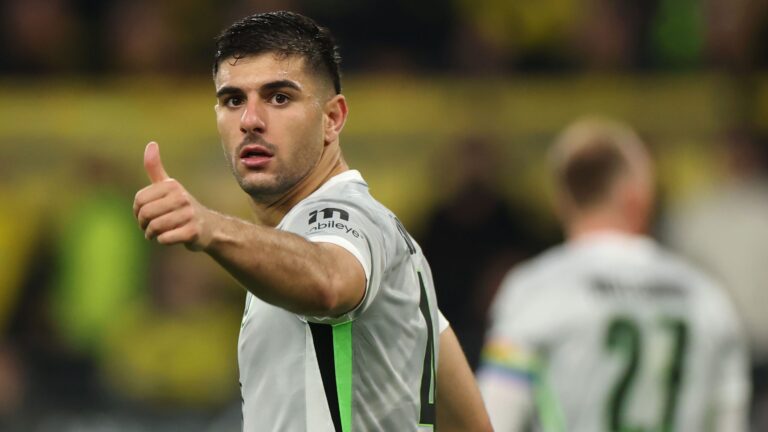


Could Marcus Rashford’s Barcelona Dream Turn into a Financial Nightmare?
In the ever-volatile world of football transfers, Marcus Rashford‘s chances of establishing a lasting presence at Barcelona hang in the balance due to the club’s tightened financial restrictions enforced by La Liga. This talented English striker, previously a cornerstone at Manchester United, has captured attention in Spain with his dynamic play, yet emerging budget issues threaten to disrupt any plans for a permanent switch.
Rashford’s Impressive Turnaround and Ascendancy in La Liga
Upon arriving at Barcelona via a loan agreement, Rashford has swiftly settled in and produced remarkable highlights, including a crucial brace in the Champions League clash with Newcastle United that clinched a tight 2-1 win. This represents a stark contrast to his difficulties at Old Trafford, where managerial decisions sidelined him, prompting his interim departure. Under his current leadership, he’s now enjoying consistent playing time and generating buzz that could lead to a full commitment.
Thriving in a Fresh Environment and Building Steam
The move to Barcelona has injected new energy into Rashford’s professional path, enabling him to display his abilities with greater regularity. Once relegated to the substitutes’ bench in the Premier League, he’s now an essential element of the lineup, attracting admiration from supporters and observers. This renewed chance demonstrates the transformative power of a new setting, similar to how prominent athletes have rejuvenated their careers through comparable relocations across European leagues.
Barcelona’s Budgetary Challenges Thwarting Long-Term Signings
Even with Rashford’s exceptional contributions on the field, Barcelona’s prospects of finalizing his transfer are endangered by La Liga’s stringent expenditure rules. The team’s allocation for player salaries has been significantly curtailed, making it tougher to pursue elite acquisitions such as this.
Insights into La Liga’s Wage Cap Adjustments
The latest announcements from La Liga indicate that Barcelona’s spending threshold for the 2025-26 campaign has fallen to €351 million from €463 million, stemming from ongoing conflicts regarding financial agreements, particularly related to earnings from stadium upgrades. With delays persisting in the Camp Nou overhaul, the club’s income from matchdays has suffered, further restricting their ability to bring in players like Rashford. To put this in perspective, analysts suggest that these types of limitations might influence as many as 20% of teams in Europe’s premier divisions, drawing from 2024 economic data.
Wider Effects on Team Expenditures
This economic pressure extends beyond Barcelona, reflecting a broader movement in soccer where governing entities are imposing tougher measures for long-term stability. Squads globally are shifting focus toward nurturing homegrown talent instead of chasing expensive imports, a tactic that may prompt Barcelona to emphasize their own prospects over outside recruits moving forward.
Barcelona’s On-Field Trials Ahead
As the team gears up for their forthcoming La Liga showdown with Getafe, they’ve maintained strong form, winning three out of their first four outings and sitting just two points behind Real Madrid. This match offers a vital chance to sustain their drive despite lingering off-pitch complications.
Tactical Shifts Led by the Manager
Guided by Hansi Flick, Barcelona is fine-tuning its strategies to handle both athletic demands and fiscal limitations, guaranteeing that stars like Rashford remain influential. This method highlights the club’s adaptability, akin to how leading squads have juggled financial prudence with competitive achievements in recent years.
The Context Behind Rashford’s Possible Switch
Speculation around Marcus Rashford has intensified, especially with Barcelona’s interest in a permanent arrangement. As a standout figure from Manchester United, Rashford has proven his worth through his agility, technique, and scoring ability. Nevertheless, transitioning to La Liga is complicated by Barcelona’s monetary hurdles, with recent analyses pointing to a substantial £100m cut in their financial limits due to La Liga’s rigorous financial fairness policies. This ambiguity regarding Rashford’s potential full transfer to Barcelona arises from these barriers, leaving enthusiasts and experts pondering the viability of such a prominent deal.
The Influence of La Liga Rules on Barcelona’s Acquisition Strategies
La Liga’s financial guidelines have consistently posed obstacles for entities like Barcelona, which encounter restrictions based on their revenues and liabilities. The £100m decrease in spending power relates to the constraints on salaries and transfers set by the league, often determined by the club’s financial oversight. For example, Barcelona’s escalating payroll and debts have compelled them to function within a more confined budget, which might prevent high-stakes pursuits like acquiring Marcus Rashford.
This challenge isn’t limited to a single player; it’s a widespread concern affecting the whole transfer ecosystem. Teams need to maintain fiscal balance, and amid rising player costs, transactions surpassing specific levels become hazardous. Rashford, estimated at approximately £80m, could strain Barcelona’s resources, particularly after their ongoing issues with registering players and assembling the squad. Terms such as “La Liga regulations” and “Barcelona’s spending capacity” illustrate how these mandates are transforming football dealings, introducing added intricacies to discussions.
To delve deeper:
- Earnings-Linked Restrictions: La Liga connects expenditure caps to a team’s profits, so Barcelona’s decline in income from sponsors and tickets directly diminishes their transfer budget.
- Liability Burdens: The accumulation of debts, including those from Camp Nou renovations, has intensified the £100m reduction, rendering permanent deals like Rashford’s improbable without offloading players first.
- Compliance Enforcement: Penalties for violating these regulations, such as point losses in other competitions, act as a deterrent, potentially postponing or obstructing Rashford’s transition.
Assessing Rashford’s Suitability for Barcelona Despite Economic Barriers
From a tactical standpoint, Marcus Rashford would be an excellent enhancement to Barcelona’s offensive lineup. His flexibility as an attacker, capable of operating on the flanks or as a main forward, meshes well with the team’s approach under coaches like Xavi. Rashford’s notable tally of over 100 goals at Manchester United emphasizes his potential influence, though the economic factors raise doubts about whether Barcelona can cover his salary and fee.
Exploring the advantages of this move:
- Enhancement of Offense: Rashford’s speed could pair seamlessly with Barcelona’s ball-retention style, generating more fluid attacking possibilities.
- Commercial Draw: Bringing in a renowned English player like Rashford could boost global partnerships, indirectly bolstering future financial flexibility.
- Enduring Potential: At age 25, he’s at the peak of his career, providing reliable output that might validate the expense if Barcelona manages their funds wisely.
Conversely, suggestions for Barcelona in chasing this deal involve emphasizing the sale of non-essential players to liberate resources. For instance, moving on from athletes like Ousmane Dembélé or Frenkie de Jong could open up the necessary room under the wage cap, rendering Rashford’s permanent arrival more attainable.
Examples of Comparable Deals Amid Fiscal Limitations
Past scenarios offer insights into Rashford’s predicament. Consider Neymar’s high-profile shift from Barcelona to Paris Saint-Germain in 2017, a £198m transaction that later burdened the selling club with financial strain due to his hefty wages and subsequent challenges. This example shows how impulsive investments can falter under La Liga’s rules, mirroring the doubts surrounding Rashford.
Yet another instance is Arthur Melo’s loan from Juventus to Liverpool, motivated by the necessity to trim expenses. These cases demonstrate how clubs respond to diminished budgets, frequently choosing temporary arrangements over permanent ones. Rashford’s prospective deal might adopt a similar route, with a loan as a way to evaluate compatibility without full obligation.
Drawing from expert opinions, numerous football commentators and retired professionals have offered views on these types of transfers. For example, former Barcelona defender Sergio Busquets has spoken about the club’s economic difficulties, explaining how rules demand choices that favor stability over acquiring superstars. This practical insight reinforces that, despite Rashford’s evident talents, the commercial aspects of the sport often hold sway.
Implications for Supporters and the Player Market
For those following Marcus Rashford’s potential move to Barcelona, the £100m reduction in spending capacity reveals the shifting dynamics of football’s finances. Advice includes keeping up-to-date via trusted outlets like Sky Sports or ESPN, which regularly cover La Liga policies and player estimates. Moreover, monitoring teams’ financial statements can aid in forecasting transfer possibilities, converting uncertainty into a compelling topic of conversation.
On a larger scale, this scenario emphasizes the importance for clubs to explore innovative solutions, such as trade agreements or incentives tied to performance, to bypass regulations. Currently, the speculation around Rashford and Barcelona maintains global interest, merging thrill with the practicalities of contemporary athletic business.
The Latest on Marcus Rashford’s Transfer Rumors
Background on Marcus Rashford’s Rise and Current Form
Marcus Rashford has been a standout player in the Premier League for years, known for his blistering speed, clinical finishing, and versatility as a forward. The English international, who has scored over 100 goals for Manchester United since his debut in 2016, has sparked significant interest from top European clubs. However, recent Marcus Rashford transfer rumors have centered around a potential permanent move to Barcelona, with fans and analysts debating whether this could materialize.
Rashford’s on-field performances have been inconsistent lately, influenced by injuries and team dynamics at Manchester United. In the 2024-2025 season, he managed 15 goals in all competitions, but his form has raised questions about his long-term fit at Old Trafford. This uncertainty has fueled speculation about a Barcelona transfer, especially as the Catalan club looks to bolster their attack with young, dynamic talents. Supporters of the move point to Rashford’s ability to play on either wing or as a central striker, making him a perfect fit for Barcelona’s high-press style under their current manager.
Barcelona’s Financial Hurdles with La Liga’s Spending Cap
La Liga’s recent financial regulations have thrown a wrench into many high-profile transfers, including any potential Marcus Rashford permanent move to Barcelona. The league’s decision to cut spending capacities by £100 million across clubs has limited Barcelona’s ability to splash out on big-name signings. This spending capacity cut, implemented to promote financial sustainability amid economic pressures, means teams must operate within stricter budgets based on their revenue and debt levels.
For Barcelona, already grappling with debt from previous years, this restriction has forced a more cautious approach to the transfer market. The club’s wage bill and overall expenditures are now under tighter scrutiny, making a high-value deal for Rashford-estimated at around £80-100 million-seem increasingly out of reach. Experts suggest that Barcelona might need to offload players like Ansu Fati or Frenkie de Jong to free up funds, but even then, the La Liga spending cap could prevent them from meeting Manchester United’s demands.
- Key impacts of the £100 million spending capacity cut:
- Reduces clubs’ ability to sign top talents like Marcus Rashford without balancing the books.
- Encourages reliance on youth academy players or lower-cost transfers.
- Puts pressure on clubs to negotiate payment structures, such as installments or performance-based clauses.
- Could lead to more loan deals with buy options, as seen in recent Barcelona transfer news.
Factors Influencing Rashford’s Potential Move
Several elements are at play in the ongoing uncertainty surrounding Marcus Rashford’s future. From contractual obligations to strategic club decisions, this transfer saga highlights the complexities of modern football transfers.
Rashford’s Contract and Manchester United’s Position
Manchester United holds a strong hand in negotiations, with Rashford’s contract running until 2028 and an option for extension. The club has publicly stated their desire to build around core players, viewing Rashford as a key asset in their pursuit of Premier League and Champions League success. However, if Rashford expresses a desire for a new challenge, United might consider offers, especially if they can reinvest the funds into squad rebuilding.
Sources indicate that Rashford’s representatives have explored options abroad, with Barcelona emerging as a favorite due to the player’s admiration for La Liga’s style of play. Yet, the financial barriers imposed by La Liga’s spending capacity cut have stalled talks. United’s valuation of Rashford remains firm at over £80 million, which could price Barcelona out of the deal entirely.
Barcelona’s Transfer Strategy Amid Financial Constraints
Barcelona’s approach to the transfer window has shifted towards value-for-money signings, given the constraints of the La Liga spending cap. While the club has targeted Rashford to replace aging stars like Robert Lewandowski, they are also considering more affordable alternatives, such as Nico Williams from Athletic Bilbao or even free agents.
In a conversational tone, it’s worth noting that this situation isn’t just about money-it’s about timing and opportunity. Rashford could bring the creativity and goal-scoring prowess that Barcelona needs, but the club’s financial recovery plan might delay any permanent move until 2026. Analysts predict that if La Liga eases its spending rules in the coming years, doors could reopen for big transfers like this one.
- Pros of Rashford joining Barcelona:
- Enhances squad depth with his pace and versatility in attack.
- Boosts Barcelona’s chances in La Liga and European competitions.
- Aligns with Rashford’s career goals for regular playing time and trophies.
- Cons due to the spending capacity cut:
- Limits Barcelona’s budget, potentially leading to over-reliance on loans.
- Increases the risk of Rashford staying at Manchester United for stability.
- Could affect fan morale if high-profile moves fall through.
The Role of External Factors in Transfer Decisions
External influences, such as international commitments and market trends, are adding layers to Marcus Rashford transfer uncertainty. For instance, Rashford’s participation in England’s national team campaigns might affect his focus on club matters. Additionally, the broader football transfer news landscape-dominated by Financial Fair Play regulations-means clubs like Barcelona must navigate global economic shifts.
How La Liga’s Policies Affect Player Movements
The £100 million spending capacity cut isn’t just a Spanish issue; it echoes similar restrictions in other leagues, like the Premier League’s profit and sustainability rules. For La Liga specifically, this policy aims to level the playing field, ensuring smaller clubs aren’t left behind. In the context of Rashford’s potential move, it underscores the need for Barcelona to prioritize sustainable growth over star power.
H4 subheaders like this one help break down complex topics, making the article more digestible for readers searching for in-depth football transfer analysis. With ongoing negotiations and Rashford’s evolving career, the story remains fluid, keeping fans engaged with the latest developments.
This multifaceted scenario highlights why uncertainty persists, blending player ambitions with league-wide financial reforms. By staying informed on these aspects, readers can better understand the intricacies of modern transfers and what it means for stars like Rashford.



